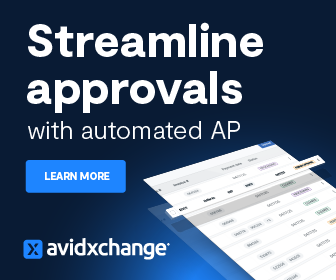CFO and Controller Alignment: 5 Things CFOs Need from Controllers
The synergy between the CFO and Controller is critical to any company’s financial success. The CFO is a strategic visionary, while the Controller is an operational custodian. The CFO-Controller duo shares the responsibilities at the micro and macro levels. In this guide, we discuss five things a CFO needs from the Controller to achieve their shared goals.
Uniting for Success
A CFO focuses on the “big picture” and takes charge of areas like capital structure management, investor relationships, and exchanging insights with the CEO and board. On the other hand, a Controller focuses on day-to-day financial operations. This includes ensuring the accuracy of financial records, compliance, and smooth functioning of the accounting team.
The CFO relies on accurate financial reporting to tell a compelling story of the company’s financial posture to stakeholders such as investors, board of directors, or shareholders for public companies. Therefore, the Controller is often seen as a CFOs “right-hand man” (or woman), and the relationship between the two is based on trust and collaboration toward common goals.
Because CFOs rely heavily on their Controllers, there are a few key things that CFOs need from Controllers to build an effective relationship. Let’s dive into five things CFOs needs from Controllers.
5 Things CFOs Need from Controllers
The CFO needs many things from Controllers to make smarter decisions, execute strategies, and achieve the company’s financial goals. But let’s talk about the top things the CFO needs from the Controller.
1. A Comprehensive Understanding of the Business Model
A comprehensive understanding of your company’s business model and relevant guidelines is critical to:
- Implementing internal controls
- Adhering to financial regulations and internal policies
- Overseeing budgets and forecasts
- Ensuring the accuracy of financial records
Without understanding the business model—the revenue model in particular—whether that’s consumption-based, subscription, professional services, support, etc., it’s difficult to deliver on the other four things that CFOs need from you. A deep understanding of the business model can help Controllers identify opportunities for growth when analyzing historical billing, expense, and revenue data.
For example, scenario planning can reveal the potential benefits of transitioning to new business models, such as moving from a sales-led to a product-led approach, adopting a consumption model, or exploring e-commerce.
Each business model has their own nuances that affect billing, timing of revenue recognition, forecasting, etc. so it’s important to fully grasp the intricacies of the company’s business model as well as any future models that may be adopted.
2. Accuracy of Financial Figures
Almost every decision the CFO makes is rooted in financial figures the Controller and their team record. Accurate financial reporting is crucial for the success of any organization, as it ensures financial integrity and supports strategic decision-making.
The controller plays a vital role in this process by meticulously overseeing the migration of detailed financial data into comprehensive reports that align with the various dimensions needed by senior management. These dimensions include verticals, product lines, geographic regions, and revenue types, all of which are essential for a nuanced understanding of the business.
Additionally, by partnering with Financial Planning and Analysis (FP&A), the controller provides invaluable insights into budgeting and forecasting, helping to project revenue accurately and manage expenses effectively. This collaboration ensures that the CFO has a clear, accurate, and strategic view of the company’s financial health, enabling informed decisions that drive the organization forward.
3. Compliance and Risk Management
Compliance and risk management are paramount in the relationship between the controller and the CFO, as they are essential for maintaining the integrity and reliability of financial reporting. Ensuring consistency with peer companies within the industry is critical, as it enables the Board, investors, and management to compare results and optimize performance effectively.
For example, among the most complex compliance areas are revenue recognition (RevRec) rules, which require meticulous attention to both compliance and accuracy to prevent errors in critical revenue reporting.
As revenue often becomes increasingly complex due to the integration of legacy offerings with new products, partnerships, and various sales channels, the controller’s diligence in this area is crucial. By managing these complexities, the controller helps to mitigate risks and ensure that financial reports are both accurate and compliant, thus supporting the CFO in maintaining a robust financial strategy.
The CFO needs you to comply with ASC 606 or IFRS 15, whichever is applicable. Non-compliance is a surefire way to invite penalties and lose investor confidence. That said, revenue recognition rules can be complex.
Moreover, the complexity increases over time as you mix legacy offerings with other things like partnerships and channels. Then there are contract modifications and variable considerations to factor in.
Establishing systems, processes, and internal controls can help you minimize errors and ensure compliance. Internal controls are also helpful in other areas of managing risk and compliance, including fraud prevention and data security.
A well-documented revenue recognition policy established in collaboration with your auditors is a must for companies who need to adhere to GAAP. Adopting an automated revenue recognition software solution with robust controls, user permissions, and proactive error notices for deviances can significantly reduce the burden of ensuring ASC 606 compliance.
4. Enhancing Revenue Streams
Enhancing revenue streams is a critical focus for the controller, who should embrace an entrepreneurial mindset rather than being a nay-sayer. This involves building organizational capability through both advanced systems and talented people.
Hiring or engaging the right talent, especially those with experience in addressing the specific challenges faced by the company, is essential to setting up effective systems and processes. As management explores new pricing and packaging alternatives to drive growth, the controller must develop a robust systems stack that can support these initiatives.
By doing so, the controller not only facilitates innovative revenue generation strategies but also ensures that the company has the infrastructure necessary to sustain and scale its growth efforts.
5. Build Automation for Scale at the ‘Right Time’: Technology and Process Improvement
Building automation for scale at the right time is crucial for technology and process improvement within an organization. Many companies fall into the trap of delaying the implementation of advanced systems and automation, instead continually patching legacy systems to keep up with increasing volume.
This often results in excessive manual effort and the need to add more headcount. A proactive controller must make the business case for automation before reaching this critical point. Modern financial tools allow for the aggregation, analysis, and strategic application of data, transforming raw numbers into actionable intelligence essential for informed decision-making and operational optimization.
By implementing these tools, the controller can free up valuable resources, allowing the team to focus on more significant strategic challenges and drive the company forward effectively.
How to Automate for Compliance, Controls, and Revenue Reporting
A tool like RightRev can help you automate your revenue recognition processes, in compliance with ASC 606 and IFRS 15 to accurately recognize revenue for complex revenue streams, and minimize the probability of errors. RightRev’s robust revenue reporting allows you to accurately report on deferred, unbilled, planned, and recognized revenue and stratify by any metric. CFOs and Controllers from growth-stage to Fortune 1000 companies trust RightRev for accurate revenue reporting without the need of spreadsheets or customizing with code. Turn your accounting team into growth drivers, instead of cost centers with automated solutions like RightRev.




